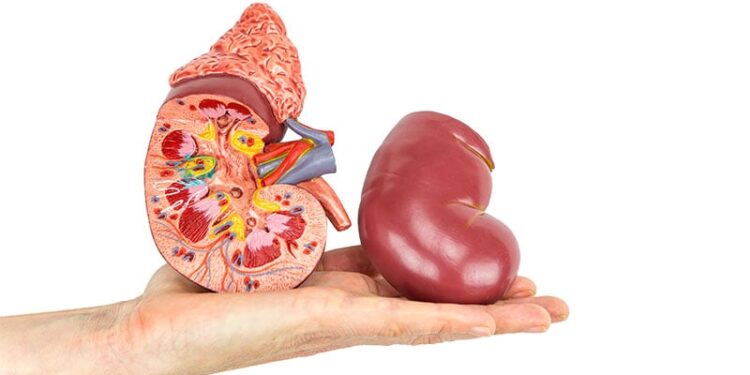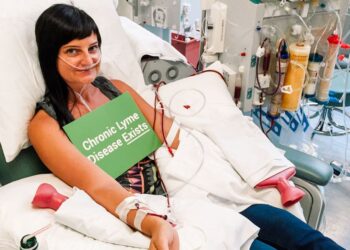TOPLINE:
In paediatric kidney transplant recipients with iron deficiency, with or without anaemia, intravenous ferric carboxymaltose therapy was safe and led to significant increases in haemoglobin levels at as early as 1 month after the first dose, with improvements being maintained for up to 12 months.
METHODOLOGY:
- Researchers conducted a retrospective cohort study to assess the safety and effectiveness of intravenous ferric carboxymaltose for treating iron deficiency and anaemia in paediatric kidney transplant recipients.
- They included 15 patients with kidney transplants and iron deficiency, with or without anaemia (mean age, 15.4 years; 60% girls), who received intravenous ferric carboxymaltose after the failure of first-line oral iron therapy; 13 patients received two doses 30 days apart, and two received a single dose.
- The median post-transplant follow-up duration was 41.8 months.
- The primary outcome was changes from baseline in haemoglobin, transferrin saturation, and ferritin levels measured at multiple timepoints for up to 12 months post-treatment; secondary outcomes included changes in serum iron and phosphorus levels and assessment of adverse drug reactions.
TAKEAWAY:
- Haemoglobin levels increased significantly from baseline after treatment with ferric carboxymaltose at 1, 3, 6, and 12 months (P < .05 for all timepoints).
- A significant increase in ferritin levels was observed at 1, 3, and 6 months (P < .05), but not at 12 months.
- Serum iron levels increased significantly at 1 and 3 months after treatment, and transferrin saturation improved after 30 days — even in patients whose saturation did not reach 20%.
- Phosphate levels remained stable throughout the follow-up period, with no cases of hypophosphataemia observed. No adverse drug reactions were reported.
IN PRACTICE:
“Our data support the past evidence on the use of FCM [ferric carboxymaltose] in pediatric patients with CKD [chronic kidney disease], adding new insight on patients with successful KT [kidney transplant] in follow-up,” the authors wrote.
SOURCE:
This study was led by Diletta Domenica Torres, “Giovanni XXIII” Hospital, Bari, Italy. It was published online on July 26, 2025, in Pediatric Nephrology.
LIMITATIONS:
The study’s retrospective design and the small sample size were notable limitations of this study. Additionally, selection bias may have occurred, and reporting of adverse events may have been incomplete or underestimated.
DISCLOSURES:
This study did not report any source of funding. The authors declared having no conflicts of interest.
This article was created using several editorial tools, including AI, as part of the process. Human editors reviewed this content before publication.
Source link : https://www.medscape.com/viewarticle/iron-therapy-can-treat-anaemia-kidney-transplant-kids-2025a1000k04?src=rss
Author :
Publish date : 2025-07-31 12:00:00
Copyright for syndicated content belongs to the linked Source.












